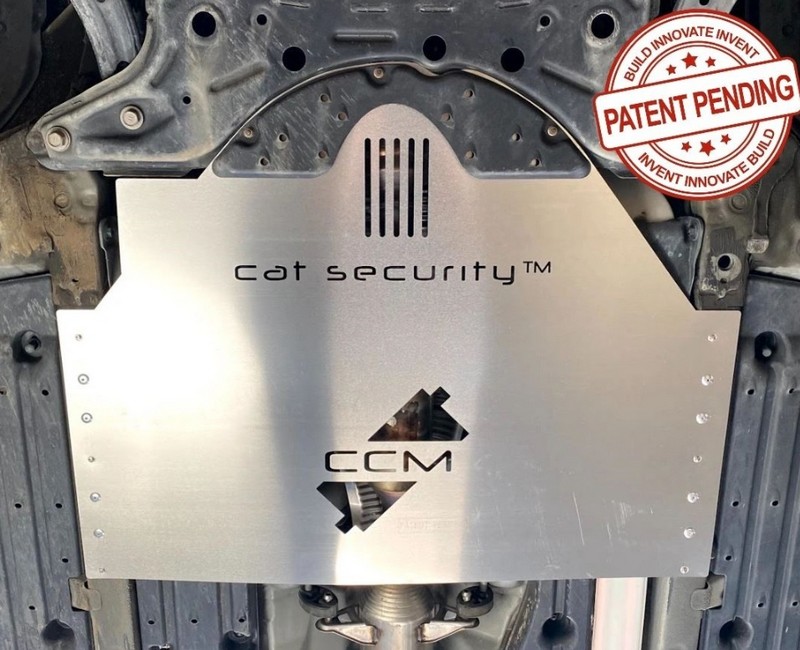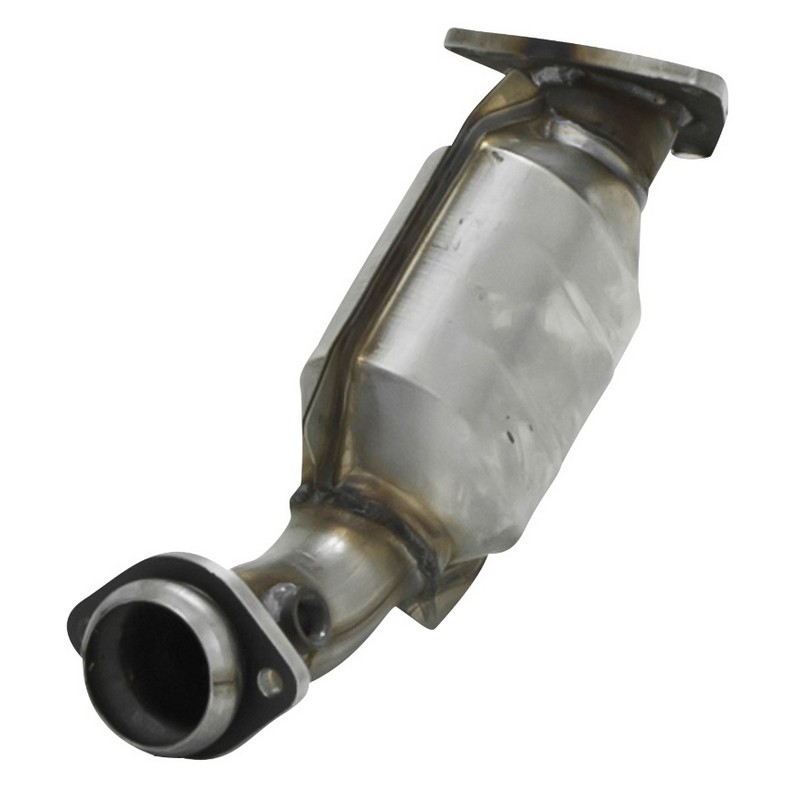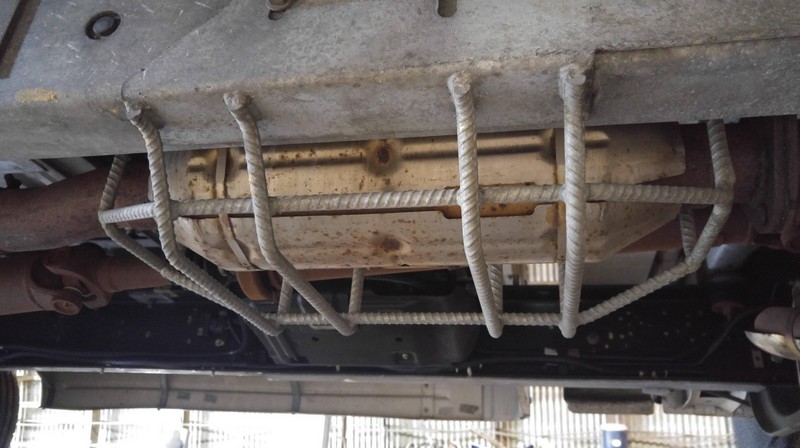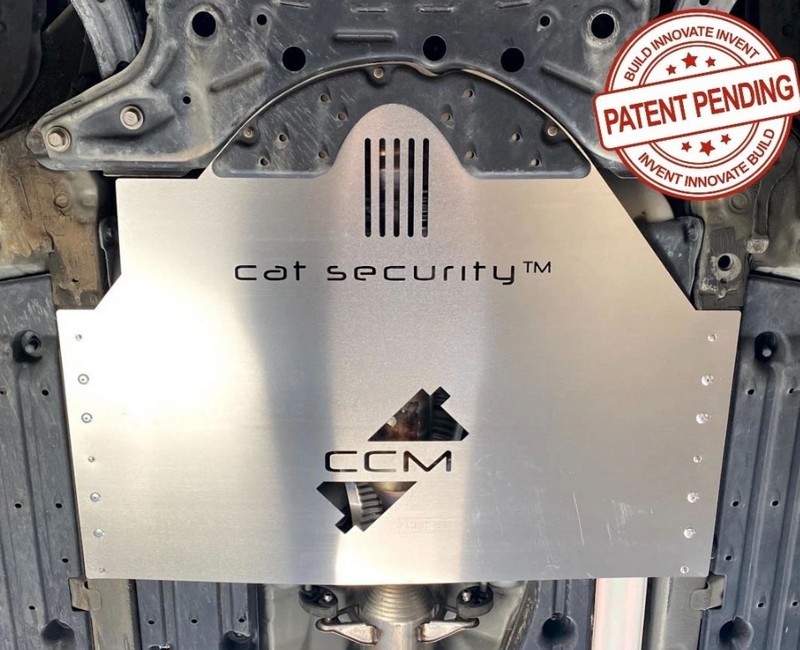
Catalytic Converter Theft: What You Need To Know
If you’ve turned on the national or local news within the past year or two, you’ve likely seen at least one article on the rising occurrence of catalytic converter theft all throughout the country. In fact, just from 2019 to 2020, thefts of catalytic converters increased by a staggering 325 percent across the nation. All vehicles, no matter where they are in the country, are subject to having their catalytic converters cut out and stolen. It’s an expensive and significant repair, and it serves all car owners well to be educated about why this happens, and how to prevent it. Some cars are also particularly susceptible to theft due to their ride height and other characteristics. Read on to find out everything you need to know about catalytic converter theft.
What Are Catalytic Converters, and Why Are They Stolen?
Catalytic converters are major components of the emissions system of any gas- or diesel-powered vehicle. Located underneath the car, these devices scrub pollutants and toxic chemicals from the exhaust gases created with the burning of fuel; they do this by using a unique combination of very valuable precious metals such as palladium, rhodium, and platinum. This means that catalytic converters are very expensive to purchase (if you’ve ever had to replace one yourself, your wallet is still likely wincing from the cost), and some cars have more than one. In fact, the cost to replace all of the catalytic converters in a used vehicle can sometimes add up to more than the cost of the vehicle itself.
Unfortunately, a healthy black market exists for all of these precious metals found in the catalytic converters of nearly every single vehicle on the road, making these components a common target for thieves. In order to steal a catalytic converter, a thief will usually slide underneath a car while it’s parked somewhere public: on the street, at the airport, or in a public parking lot. They will generally use battery-powered angle grinders and sawzalls to cut through the exhaust pipes at either end of the converter. This can also be particularly damaging, because, as you’d expect, criminals don’t care about collateral damage. Frequently, they’ll also cut through subrails of the frame, fuel or brake lines, or wiring looms at the same time. On average, it takes about three minutes of cutting to steal a catalytic converter.
Needless to say, if you’re the victim of a catalytic converter theft, it can end up being an extremely expensive repair and a massive inconvenience. It’s helpful to know your risk level, and how to prevent these thefts from occurring.
Which Cars Are Most At Risk?
Any car that is high enough off the ground for a criminal to squeeze under is at risk of having its catalytic converters stolen, but the more ground clearance there is for a thief to work, the more careful one should be, in general. This means owners of off-road SUVs like the Mercedes-Benz G Class, Land Rover models, and Jeep Wranglers need to be particularly careful about where they leave their vehicles. Additionally, all pickup trucks (including the popular Ford Raptor) are generally high-riding enough to become an easy target for thieves. Oddly, the Toyota Prius is common victim too; it has two “cats” for twice the payoff for thieves.
Of course, like with any crime, the threat of catalytic converter theft can’t be completely eliminated. But by understanding how thieves work, the most common places for thieves to prowl, and some simple steps that can be taken to dissuade criminals, you can greatly reduce your risk of falling victim to this incredibly costly crime.
How Can I Prevent Catalytic Converter Theft?
Perhaps the most effective step one can take to reduce their odds of being targeted by catalytic converter thieves is also the most obvious and cheapest; choose your parking spots wisely. At your home, keep your car inside the garage, if you can. Regardless of whether or not you’re lucky enough to have a garage of your own, motion-activated floodlights and security cameras can help deter thieves from messing with a car parked in the driveway.
It’s not always possible when you’re out and about, but if you are spending the night somewhere, try to park in a secured, locked, and patrolled parking lot that’s well-lit. If at all possible, don’t leave your car, especially a high-clearance one like a G Wagon, parked on the street or at the airport overnight, especially if you find yourself in a seedier part of town.
Another option to consider is anti-theft devices. People have been fabricating their own catalytic converter guards for years, welding them out of solid plate steel and even rebar, and then welding them to the frame to guard against theft. There are also a few aftermarket solutions for those who want a more professional solution; a simple internet search of “catalytic converter shield” will give you some ideas of the products available for your vehicle. This is an option to consider if you frequently street park, or regularly need to leave your cars in places that are less than ideal from a security perspective.
Additionally, you can also buy dedicated alarms made especially to deter the theft of catalytic converters. Generally, these alarms are attached to the “cat” via a hose clamp and hang underneath. When activated with a key fob, these will set off a loud, audible alarm if it is moved at all. It isn’t foolproof, but a loud alarm can sometimes be all that’s needed to scare a criminal off, especially in a public place.
Don’t Become A Victim
If all of this fails and you should find your converters stolen from underneath your car one day, always be sure to file a police report immediately and let your insurance company know (even if the cost to replace them is less than your deductible). Reporting these crimes helps police gather data and could eventually lead to new laws or regulations aimed at reducing catalytic converter theft. Overall, a little vigilance and awareness will help greatly to keep your catalytic converters attached to your exhaust where they should be, and not in the hands of some black market junk dealer. Be vigilant, be aware, and stay catalyzed.
Photo Gallery




